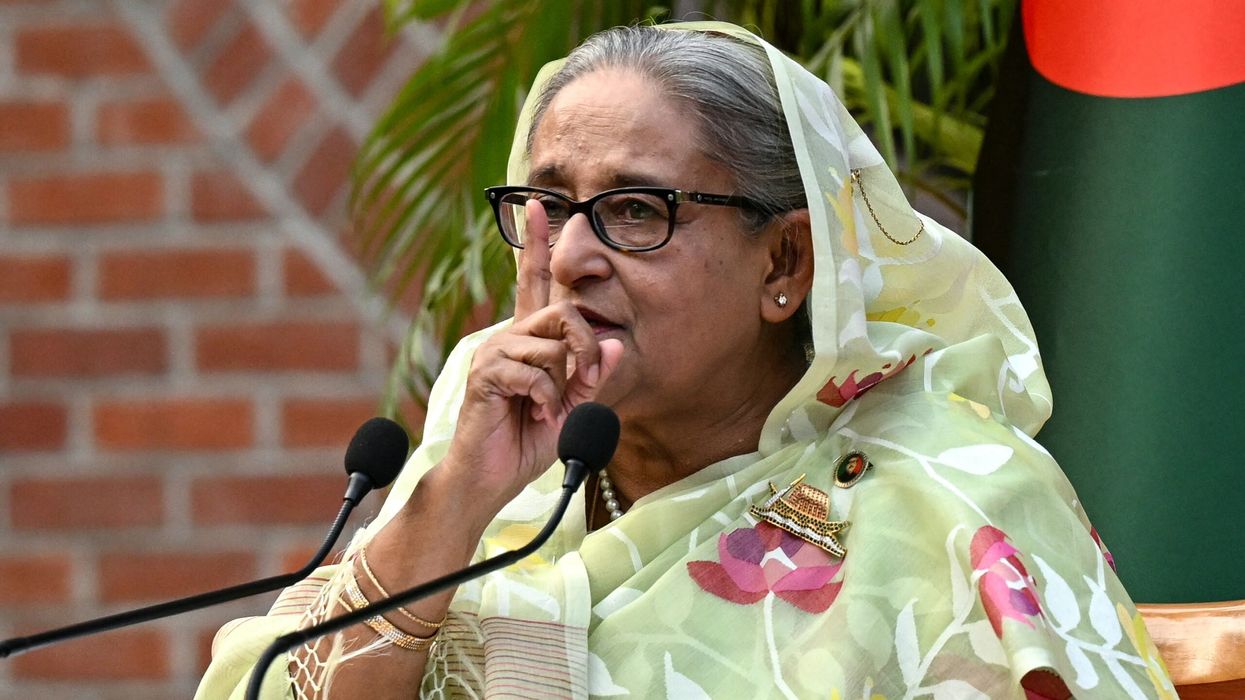By Amit Roy
THE president of the Royal Society, Prof Sir Venkatraman ('Venki') Ramakrishnan, has expressed concerns about the negative impact that British withdrawal from the European Union would have on scientific collaboration.
He did so last Friday (12) during his address at a ceremony which saw 62 new Fellows, several of them of Indian origin, admitted to the Royal Society.
Venki did not mention the word ‘Brexit', but his intent was clear when he said: "Given today's world and particularly in the context of Britain, I should point out that one of the society's goals is to foster international and global cooperation.
"Bill Bryson, in the book he edited on the Royal Society, describes further how it had an international outlook right from the start. When he talks about the name, the Royal Society of London, rather than
England, because the UK did not exist until 50 years later, he suggests a place rather than a national allegiance. And the Royal Society had a foreign secretary long before the British government did.
"None of its German foreign members was expelled during either of the wars in the 20th century. Compared to the Napoleonic and world wars, the transition that the UK finds itself today seems rather mild, but during this time, the Royal Society is playing an active role in maintaining and strengthening our interactions with those abroad, including in Europe.”
Venki, who shared the 2009 Nobel Prize for chemistry with two others, emphasised the society would strive to maintain its international relations as it has done since its inception.
He said: "We do that because science and scientists transcend national boundaries and work in a common cause for the advancement of human knowledge."
It is known that Venki has little patience with what is considered by scientists to be "mumbo jumbo" uttered by some senior Indian politicians, who claim that the country boasted transplant surgery and flying machines even in mythological times.
He pointed out: "The Royal Society was an early advocate of what is now known as the scientific method. Its motto - Nullius in verba or roughly on nobody's word - is the philosophy that new knowledge is acquired by observation and experiment; that is, it is evidence-based.
"In doing so the Royal Society helped win one of the major debates in science in its time and influence the subsequent course of science."
Venki presided over a solemn occasion which began with a mace being brought in at the head of a ceremonial procession.
He explained that the mace, given to the Royal Society in 1660 under the patent of Charles II, "is the symbol of the crown which is present at all formal meetings of the Royal Society which is why it is here today.”
"This is the 359th year of the Royal Society. Today, the society has a number of activities - promoting science and its benefits, including in industry; supporting outstanding science through research fellowships, through partnerships and professorships and other such grants; providing scientific advice to policy, which is increasingly important in a complex world which is taking up quite a significant fraction of the society's efforts; and education and public engagement, including through the history of science, because we have an incomparable archive of scientific writing.
"Then another important aspect of the Royal Society is to recognise the excellence of Fellows and foreign members.”
Venki closed his address by quoting by "what a scientific hero of mine, Max Perutz", an Austrian-born British molecular biologist who shared the 1962 Nobel Prize for chemistry, had said to a donor to the society: 'Interviewers sometimes ask me whether I feel Austrian or English or Jewish. Or whether my emigration has deprived me of a secure sense of belonging.
'My reply is usually evasive because they would not understand if I tell them that I belong to the Royal Society and that is all I need.’
Venki, the first Indian-origin president of the Royal Society who is based at the Laboratory for Molecular Biology in Cambridge, will step down at the end of 2020 after five years in the post.
He greeted each new Fellow with a handshake and the words: "I do by the authority and in the name of the Royal Society of London for improving natural knowledge admit you a Fellow thereof.”





 John Dramani Mahama welcomes Modi on his arrival in Accra last Wednesday (2)
John Dramani Mahama welcomes Modi on his arrival in Accra last Wednesday (2) South Africa’s president Cyril Ramaphosa, Brazil’s president Luiz Inacio Lula da Silva, Modi and China’s premier Li Qiang at the Brics summit last Sunday (6)
South Africa’s president Cyril Ramaphosa, Brazil’s president Luiz Inacio Lula da Silva, Modi and China’s premier Li Qiang at the Brics summit last Sunday (6)












